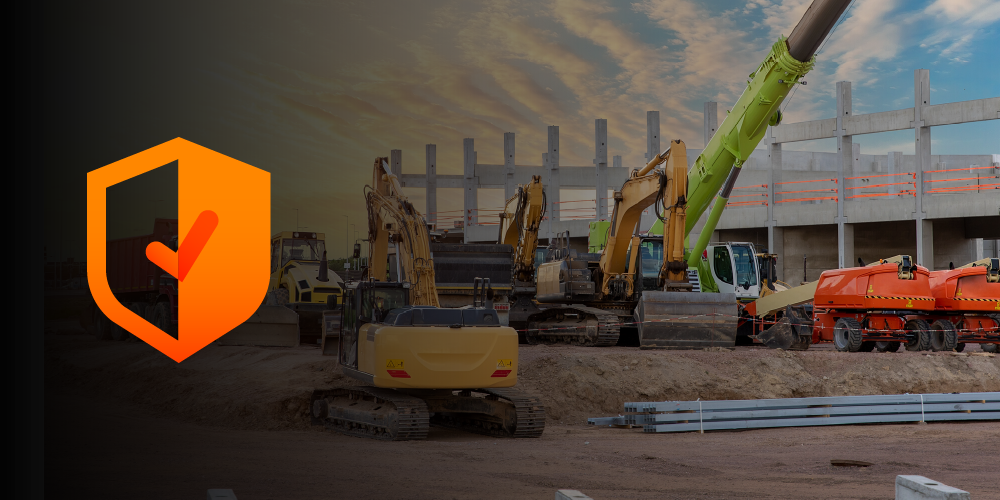— 7 min read
Roofing Insurance: A Guide for Contractors
Last Updated Aug 14, 2024
Last Updated Aug 14, 2024

As a contractor, you shouldn’t have to think twice about securing insurance for your roofing business. This trade stands out as one of the most grueling occupations, according to the Bureau of Labor and Statistics. Injuries and accidents do happen, and you’ll want adequate protection in case an employee is injured or a customer’s property gets damaged.
It’s prudent to explore all your options when protecting the financial health of your business. The following overview will give you an idea of how roofing contractor's insurance works, what types of policies fit your situation, and how you can obtain the proper coverage for your business.
Table of contents
What is roofing contractor's insurance?
A roofing contractor's policy helps protect your business from financial harm. Policies like workers’ compensation policies between your business and an insurance company extend protection if an employee gets hurt on a job, and a commercial auto policy protects you if a work truck collides with another vehicle or structure.
A business insurance policy may contain business, property, and general liability coverage that kicks in when certain scenarios take shape. Liability insurance protection can apply to legal defense costs if a customer or general contractor alleges you are at fault when an injury or accident occurs on a project. Tools and equipment policies come into play if building materials are stolen from a worksite, for example.
Depending on the specifics of the roofing business, such as time in business, type of roofing performed, safety history, and more, policies may be available as a package or a bundle, or a roofing business may have to purchase separate policies to cover different risks.
Check out how equipment and installation floaters can help protect your jobsite tools.
Why is insurance important for a roofing contractor?
Worker injury
Considering the nature of your work, it’s not difficult to imagine the possibility of an injury on a job. You could see an employee suffer a fall from a roof, preventing that person from working for a long time period. That employee may be able to show that your business had provided unsafe working conditions and that the injury occurred as a result of that oversight. Loss of income and medical expenses can mount quickly, and you’ll need insurance to help defray those costs if you’re found responsible in part or in whole.
Liability for damage
Even after a residential property is under roof, things like walls, flooring, and fixtures could be damaged by water seeping through improperly installed shingles. Extensive repairs and replacement would put a considerable dent in your finances if insurance were not maintained. Liability insurance helps cover situations like these — and more.
Licensing & contract requirements
Claims possibilities aside, a general contractor will want proof of insurance if you’re acting as a sub. Most contracts will list a minimum amount of liability coverage needed to perform the work. You might also discover that municipalities will want proof of insurance before you start work on a property within that city’s jurisdiction.
What types of insurance can roofing contractors use?
Along with a standard roofing insurance policy, you’ll want to investigate other types of coverage that apply to different potential claims circumstances and determine which is right for your business. Here is a brief description of some of those policies.
- Business owner’s policy: This may be a good starting point since this multi-part policy may offer coverage for the property if your facility storing generators, ladders, shingles, etc. is vandalized or damaged by a windstorm, among other possible perils. Business owner’s insurance can also include liability coverage for some small businesses.
- General liability insurance: If you’re involved in a lawsuit where a customer or third party says faulty sub-roof installation caused property damage (or possibly reputational damage), general liability may help pay for repairs as well as the legal defense costs, and lawsuit awards associated with that action.
- Inland Marine insurance: When moving equipment, an equipment floater covers a broader list of hazards that can damage your business property, including scissor lifts, scaffolding, and platform lift hoists — wherever they may travel on land.
- Professional liability insurance: If you consult with architects or GCs, this insurance protects you from financial loss stemming from poorly conceived roof drawings or designs. This policy helps close gaps in coverage that may result as your roofing company expands its operations.
- Workers' compensation insurance: Roofing businesses often witness more on-the-job injuries to employees than the average construction contracting company. Workers’ comp policies can help cover the cost of medical treatment, for example, if a worker were to fall from a roof.
- Commercial auto insurance: When you’re transporting equipment and/or employees from place to place, business auto insurance can provide coverage if you incur damage to a pickup or cause damage to another party’s property.
How do I get roofing insurance?
When purchasing a roofing contractor insurance policy, it might be a good idea to speak with an insurance agent or broker who specializes in insurance for specialty contractors. The agent or broker would act as an intermediary between you and the insurance company and help identify specific coverages you may need for your business.
You may also need to submit an application or complete a questionnaire, along with some information about your business, to the insurance company. This information ranges from basic company data, including location, address, and type of business organization, to more detailed specifications, like sales figures, annual payroll amounts, and claims history (if you were previously insured).
These facts, figures, and work descriptions are then reviewed by the insurance carrier. An underwriting representative of the insurance company analyzes your business history and experience, eventually issuing a policy taking all these factors into consideration. Some type of down payment may be necessary to bind the contract if your application is approved though some companies may offer payment plans or accept third-party financing.
It’s important for roofers to disclose the specific nature of their work. If a roofer is taking a paying job to install a fence, for example, the insurer would need to know about that. Otherwise, there could be coverage issues if an incident occurred while a roofer was performing work that the insurance company didn’t know about.
Roofing companies that offer design services may also consider buying professional indemnity insurance that provides protection when errors and omissions may require a roof to be repaired or rebuilt.
How much does roofer's insurance cost?
As a roofer, you could expect to pay higher premiums for most coverages than those paid by contractors in other trades.
For instance, a roofer in Pennsylvania might pay a much higher premium than electricians or carpenters for workers' compensation insurance due to the demanding nature of the work.
A roofer’s operations typically involve a greater risk of employee injury or the probability that faulty construction could cause widespread damage to interior structures and fixtures.
Between various roofers, other cost factors include:
- Where you work
- How many people you employ
- The number of jobs you take on annually
- The types of properties where you perform work
- The types of roofing work you perform
- The amount of claims paid out in previous years
- The level of coverage you choose
Sealing it up: Choose the best policy for you
Roofers typically have unique insurance needs due to the demanding work they perform. As such, general liability policies carry much weight in this profession as does workers' compensation for contractors who have employees.
Brokers and agents can recommend solutions that encompass a wide range of coverages that can be obtained by application with many commercial property and casualty insurance carriers.
Was this article helpful?
Thank you for your submission.
0%
100%
You voted that this article was . Was this a mistake? If so, change your vote here.
Scroll less, learn more about construction.
Subscribe to The Blueprint, Procore’s construction newsletter, to get content from industry experts delivered straight to your inbox.
By clicking this button, you agree to our Privacy Notice and Terms of Service.
Categories:
Written by
Thomas Tracy
13 articles
Thom is a group benefits consultant with over 25 years of experience as an insurance and financial advisor. He has written for Quickbooks, tED Magazine, Investopedia, the National Bank of Arizona, and others.
View profileExplore more helpful resources

What is Equipment Floater Insurance for Contractors?
Most contractors rely on tools and equipment to complete construction projects. But if something happens to those items, they can be expensive to replace. Contractors can benefit from purchasing an...

Construction Equipment Rental Insurance: How & Where to Get Coverage
Contractors and construction businesses that rent equipment should consider getting construction equipment rental insurance. This type of insurance covers the cost of replacing rented tools and equipment if they get...

Understanding Construction Insurance: Actuarial vs. Underwriting Factors
Determining the price of construction insurance is complex, with much of the work happening behind the scenes. Most construction companies interact primarily with an insurance broker or agent, but actuaries...

Construction Insurance Pricing: What Determines the Cost of Insurance?
Construction is a risky and litigious business, and insurance can help mitigate the risks for builders and owners. Construction insurance is a valuable and frequently required tool, so understanding how...